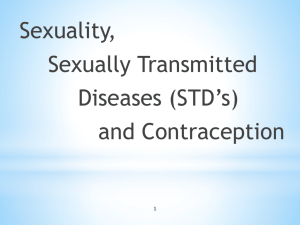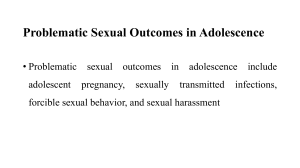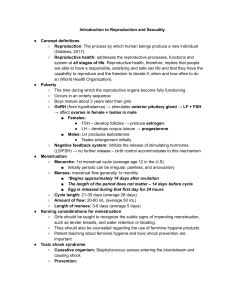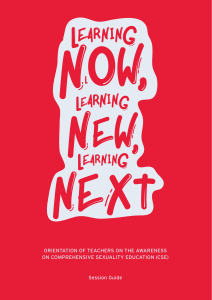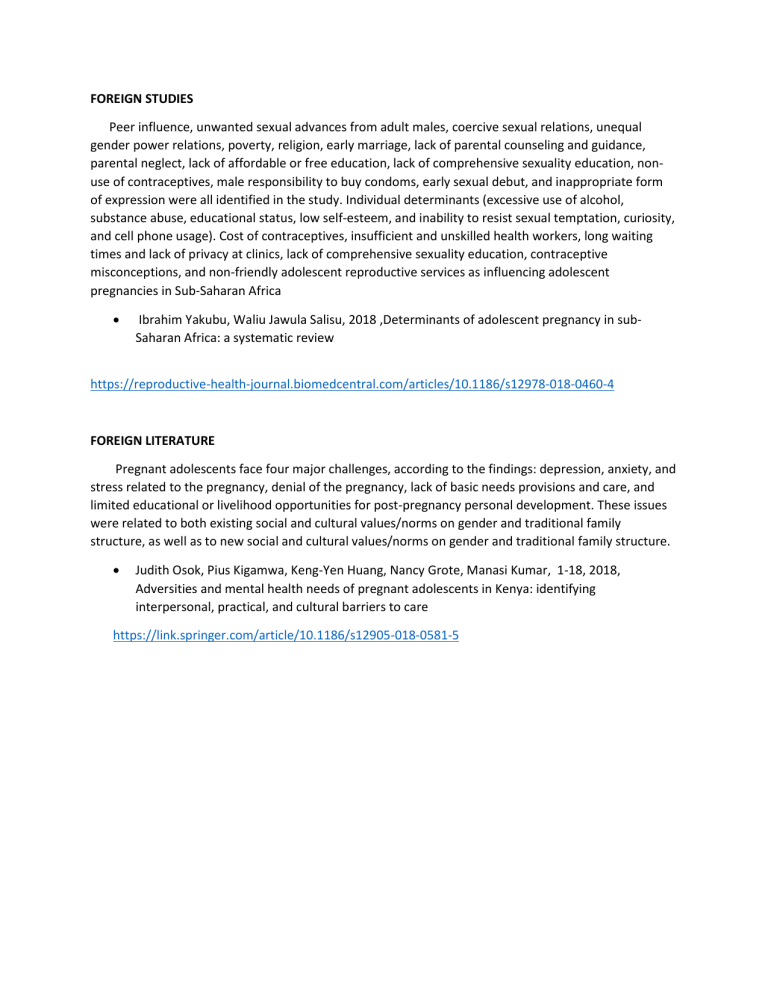
FOREIGN STUDIES Peer influence, unwanted sexual advances from adult males, coercive sexual relations, unequal gender power relations, poverty, religion, early marriage, lack of parental counseling and guidance, parental neglect, lack of affordable or free education, lack of comprehensive sexuality education, nonuse of contraceptives, male responsibility to buy condoms, early sexual debut, and inappropriate form of expression were all identified in the study. Individual determinants (excessive use of alcohol, substance abuse, educational status, low self-esteem, and inability to resist sexual temptation, curiosity, and cell phone usage). Cost of contraceptives, insufficient and unskilled health workers, long waiting times and lack of privacy at clinics, lack of comprehensive sexuality education, contraceptive misconceptions, and non-friendly adolescent reproductive services as influencing adolescent pregnancies in Sub-Saharan Africa Ibrahim Yakubu, Waliu Jawula Salisu, 2018 ,Determinants of adolescent pregnancy in subSaharan Africa: a systematic review https://reproductive-health-journal.biomedcentral.com/articles/10.1186/s12978-018-0460-4 FOREIGN LITERATURE Pregnant adolescents face four major challenges, according to the findings: depression, anxiety, and stress related to the pregnancy, denial of the pregnancy, lack of basic needs provisions and care, and limited educational or livelihood opportunities for post-pregnancy personal development. These issues were related to both existing social and cultural values/norms on gender and traditional family structure, as well as to new social and cultural values/norms on gender and traditional family structure. Judith Osok, Pius Kigamwa, Keng-Yen Huang, Nancy Grote, Manasi Kumar, 1-18, 2018, Adversities and mental health needs of pregnant adolescents in Kenya: identifying interpersonal, practical, and cultural barriers to care https://link.springer.com/article/10.1186/s12905-018-0581-5
